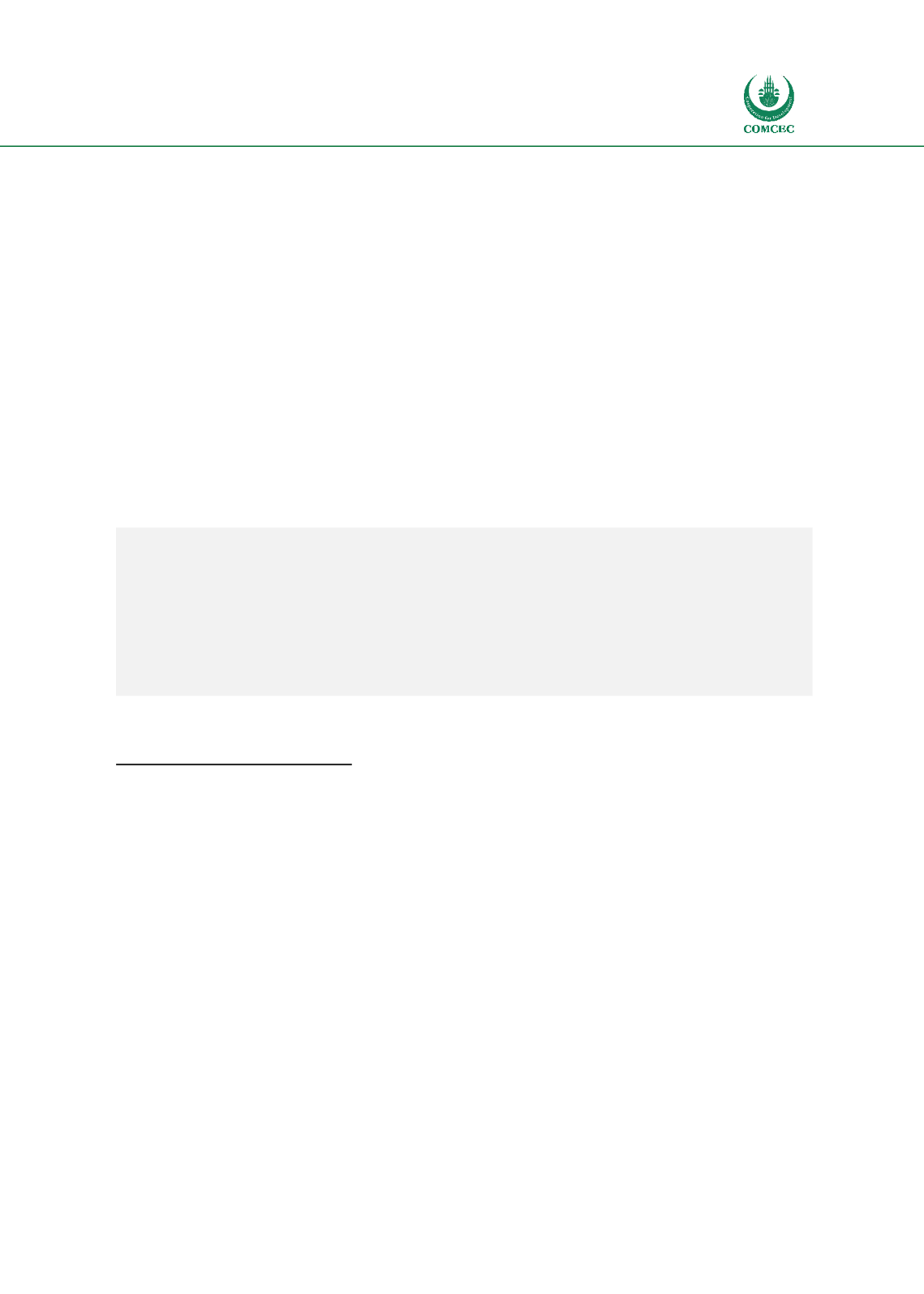

Special Economic Zones in the OIC Region:
Learning from Experience
143
far, it is the Southwest, Southeast and portions of the Northwest quadrant that are being
developed.
The power supply in the zone is provided by 12MWof fromGeneral Electric Gas Generators. The
water supply is currently supplied by several bore holes but this is seen as a temporarymeasure,
until the construction of a permanent water treatment plant is completed. Telecommunications
infrastructure plans have not been completed yet but the mobile phone networks cover the
Lekki Free Zone area, according to the LFZDC.
The Lekki Free Zone also houses a customs processing centre and container terminal. There are
also plans under way to build a new Port and a new International Airport on the Lekki Peninsula,
to add capacity for the fast growing city of Lagos, as well as to cater for the Lekki Free Zone
investors.
Box 39 – Lekki Free Zone – Challenges in Infrastructure Provision – Interview with Lekki Free
Zone Authority
5.6.3
Legislative and Regulatory Framework
Background of SEZs in Nigeria
After the challenges faced by the first, second, third and fourth national development plans
between 1962 and 1985, Nigeria undertook a structural adjustment programme in 1986. The
objectives of programme included promoting investment, stimulating non-oil exports and
providing a base for private sector-led development; promoting the efficiency of Nigeria’s
industrial sector; privatizing and commercializing state-owned enterprises to promote
industrial efficiency programme. The programme also resulted in the development of new
legislation, including the Privatisation Act of 1988 and the Public Enterprise Act of 1989. The
Structural Adjustment Programme was soon followed by the New Industrial Policy of 1987. This
industrial policy had a strong focus on export promotion and this focus led to the creation of
legislation to achieve these goals. In 1992, Nigeria adopted the Export processing zone
development strategy via Decree No. 63. This laid out the goal of promoting exports, attracting
foreign investment, encouraging economic diversification and building Nigeria’s industrial
sector. This was soon followed by the Nigeria Investment Promotion Commission (NIPC) Act in
The Lekki Free Zone Authority identified that the main challenge facing the Lekki Free Zone
at present is the slow development of additional infrastructure. The large sum of money
required to develop new infrastructure, including new roads, but particularly the new port
and airport, means that different sources of finance need to be found – not only from the state
and federal government but from development banks and or private investors.
















